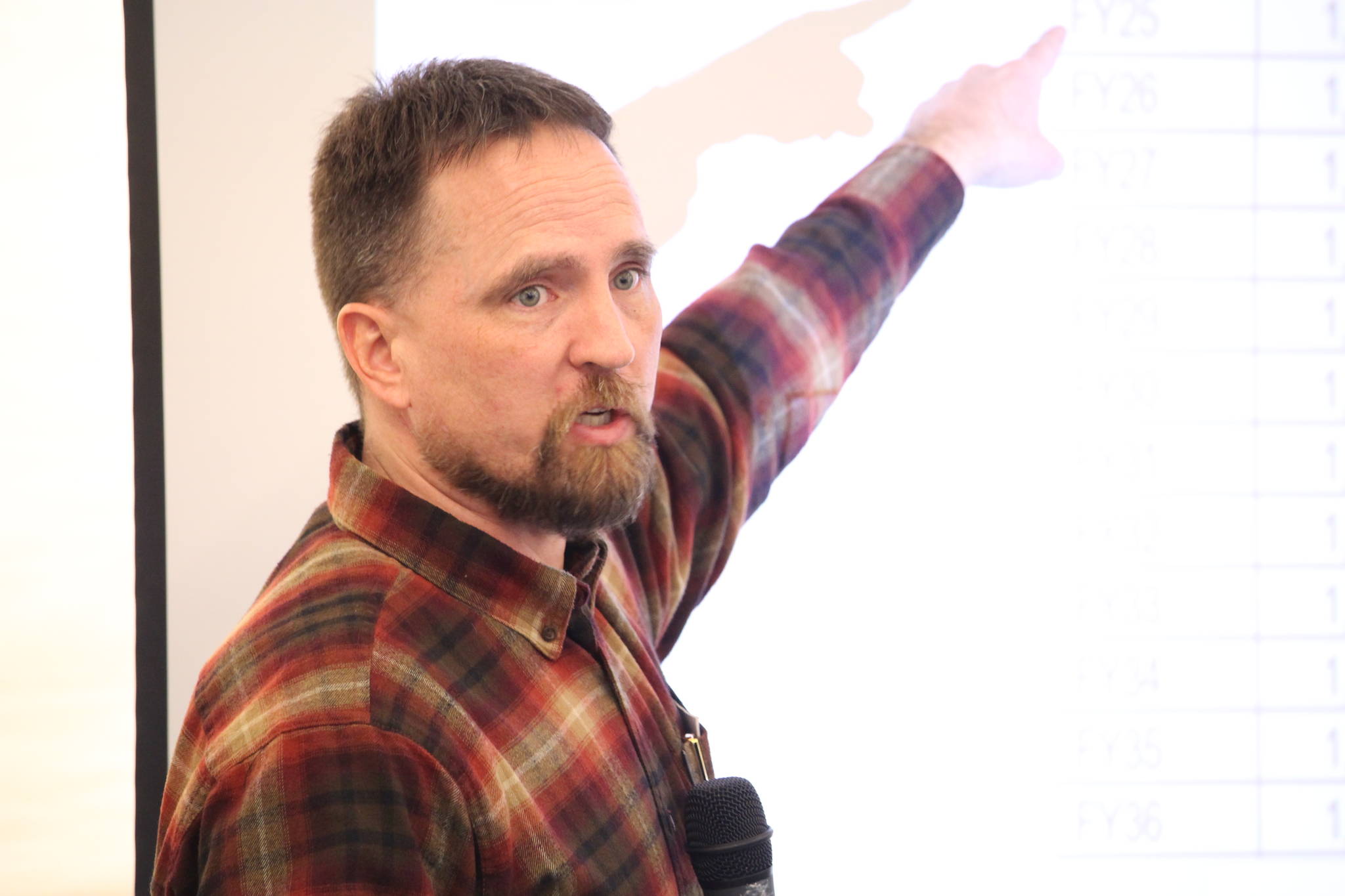During a town hall in Nikiski on Saturday, Rep. Ben Carpenter, R-Nikiski, shared with his constituents some of his ideas for achieving long-term fiscal sustainability in the state, including a proposal to speed up the growth of the Alaska Permanent Fund by diverting all future oil royalties to the fund.
Carpenter emphasized a point that he has made repeatedly in the past several weeks: he believes the state cannot continue to rely on revenue from taxes on the oil and gas industry in the wake of declining oil prices and limited production on the North Slope.
“I believe that it’s only going to be harder, going into the future, to drill for oil,” Carpenter said. “I think the politics of oil development are just going to get harder incrementally as we go forward into the future.”
Carpenter said that oil production and royalties are expected to increase slightly by 2030, but will once again decrease after that point. In the past few days, global oil prices have experienced a significant reduction, which has led to even more uncertainty about the ability for oil production to sustain the state.
Carpenter said that he believes one way to potentially address Alaska’s fiscal sustainability lies in growing the permanent fund to a size large enough that returns on its investments are adequate to fund state services.
Carpenter’s proposal for making that happen is to start putting all royalties from oil and gas production directly into the permanent fund, rather than splitting those royalties between the permanent fund and state services.
“If we put all of our royalties into the permanent fund and grow that thing as fast as we can, we have larger nest egg of earnings from that,” Carpenter said. “Assuming we continue to increase (the permanent fund) by about 7% interest annually, the portion that can go to state government and the portion that can go to permanent fund dividends grows.”
Carpenter presented a possible scenario for the state’s finances over the next 20 years, based on forecasts from the Legislative Finance Division, in which 100% of oil and gas royalties have gone into the permanent fund and spending on state services has been capped at .5% growth annually. In Carpenter’s scenario, by 2040, the permanent fund balance would be $139 billion, the Percent of Market Value drawn from the fund’s Earnings Reserve Account would be about $6.1 billion, and the state’s budget would show a surplus of $800 million. That draw of $6.1 billion, according to Carpenter’s presentation, would mean about $4.3 billion for state services and $1.8 billion for the permanent fund dividend.
Carpenter admitted that while this is a possible solution in the long-term, it does not address the immediate shortfall of about $1.5 billion that the Legislature needs to address for fiscal year 2021. Carpenter’s preferred solution to the shortfall is to cut spending on state services while maintaining a “full” permanent fund dividend payout. Carpenter pointed to the four departments that are the largest drivers of cost to the state — education, health and social services, corrections and transportation — as the areas where he would like to start looking at cuts. Carpenter said that he would be in favor, for example, of consolidating Alaska’s school districts in order to reduce administrative costs.
“I’m not saying eliminate schools, I’m not saying cut teacher programs and cut teachers, I’m saying do things smarter than we’ve done before,” Carpenter said. “Those are the departments that we have to look at because all the others don’t add up to what we’re spending on those four.”
Carpenter said that new taxes are on the table for this year, but he does not believe they would address the continued rising costs of state services.
“We can increase taxes and solve our problems this year,” Carpenter said. “But what do you do next year, when (spending) continues to grow?”
Editor’s note: Reporter Brian Mazurek is a cousin of Rep. Ben Carpenter.

